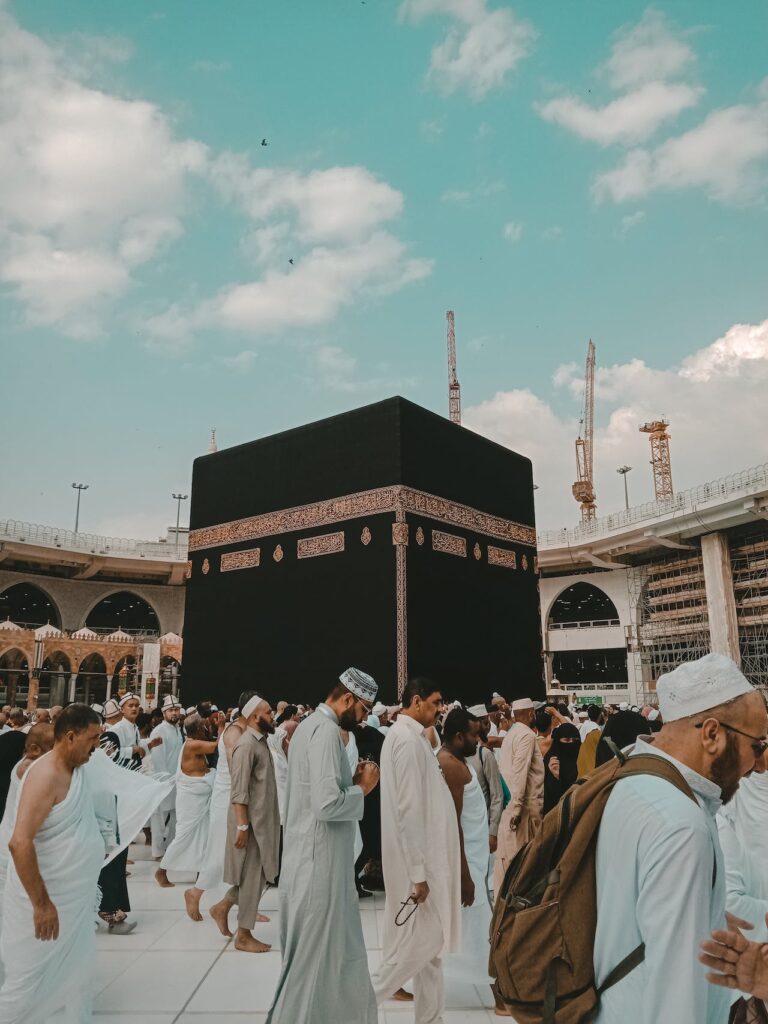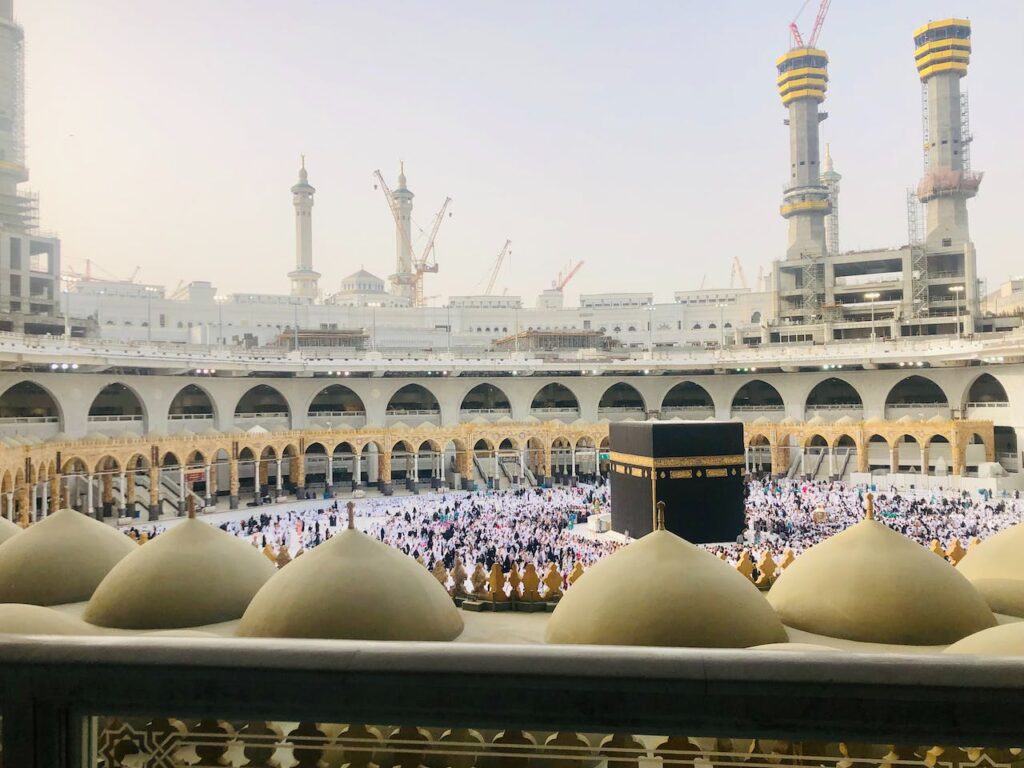As an integral part of the Hajj pilgrimage, Tawaf al-Ifadah holds great significance for millions of Muslims worldwide. This article explores the essence of Tawaf al Ifadah, also known as the Tawaf of Hajj,
its rituals, and its importance in completing the Hajj journey. By understanding the rituals and spiritual significance of Tawaf al Ifadah,
pilgrims can deepen their connection to the sacred journey and derive greater spiritual benefits from this essential Hajj rite.
Understanding Tawaf al-Ifadah
Tawaf al-Ifadah is a ritual that pilgrims perform during the Hajj pilgrimage, specifically on the 10th, 11th, or 12th day of the Islamic month of Dhul Hijjah. It takes place in Mecca, at the Grand Mosque (Al-Masjid al-Haram).
Moreover, Tawaf al Ifadah signifies the return of the pilgrims from Mina, where they spend the day of Arafah and perform the symbolic stoning of the devil.
Rituals of Tawaf al-Ifadah
- State of Ihram: Before performing Tawaf al Ifadah, pilgrims must be in the state of Ihram, which involves wearing the prescribed clothing and observing certain restrictions.
- Arrival at the Grand Mosque: Pilgrims arrive at the Grand Mosque in Makkah, where they circumambulate the Kaaba, the sacred house of Allah, seven times counterclockwise, just as in the Tawaf al-Qudum (Arrival Tawaf).
- Sa’i: After completing Tawaf al Ifadah, pilgrims proceed to perform Sa’i, which involves walking between the hills of Safa and Marwa, emulating the actions of Hajar (the wife of Prophet Ibrahim) in search of water for her son Ismail.
- Shaving or Trimming Hair: Following Sa’i, men typically shave their heads completely or trim their hair, symbolizing the completion of Hajj rites. Women trim a small portion of their hair.
Importance and Spiritual Significance
Tawaf al Ifadah holds immense spiritual significance for pilgrims. It symbolizes the unity of the Muslim ummah as they collectively perform the rites of Hajj. It also represents the return of the pilgrims’ hearts and souls to Allah after the intense day of Arafah. The act of circumambulating the Kaaba serves as a reminder of the devotion and surrender to the Almighty.
Moreover, Tawaf al Ifadah signifies the completion of the major Hajj obligations, marking a significant milestone in the pilgrim’s journey. It represents the fulfillment of one’s religious duty and the hope for forgiveness and purification of sins.
In addition, The spiritual essence lies in the recognition that the true purpose of life is to worship and seek closeness to Allah, transcending worldly distractions.
Practical Considerations and Etiquettes
- Physical Preparation: Due to the large crowds during Hajj, it is advisable to wear comfortable clothing and shoes suitable for walking long distances.
- Patience and Respect: Pilgrims should exercise patience and maintain a respectful attitude towards fellow worshippers, ensuring a harmonious and peaceful environment during Tawaf al-Ifadah.
- Invocation and Remembrance: Utilize the time during Tawaf al-Ifadah to supplicate. Recite Quranic verses, and engage in remembrance of Allah, seeking His blessings and mercy.
- Hygiene and Cleanliness: Pilgrims should adhere to proper hygiene practices, respecting the sanctity of the Grand Mosque and its surroundings.
FAQs
Q: When is Tawaf al-Ifadah performed?
A: Tawaf al-Ifadah is performed on the 10th, 11th, or 12th day of the Islamic month of Dhul Hijjah, after the day of Arafah.
Q: Can women perform Tawaf al-Ifadah?
A: Yes, women can perform Tawaf al-Ifadah just like men. However, they should follow the guidelines of modesty in their attire, ensuring that their clothing covers their body appropriately.
Q: What comes after Tawaf al-Ifadah?
A: After completing Tawaf al-Ifadah, pilgrims proceed to perform Sa’i,
which involves walking between the hills of Safa and Marwa seven times. This is followed by shaving or trimming the hair, symbolizing the completion of the Hajj rites.
Conclusion
In conclusion, Tawaf al-Ifadah is a pivotal ritual in the Hajj pilgrimage,
symbolizing the return of the pilgrims’ hearts and souls to Allah. By understanding the rituals and spiritual significance of Tawaf al-Ifadah, pilgrims can enhance their connection with the sacred journey. Adhering to the prescribed rituals, and maintaining a respectful attitude.
In addition, seeking spiritual nourishment through supplication and remembrance will enable pilgrims to derive profound spiritual benefits from this essential aspect of Hajj.






